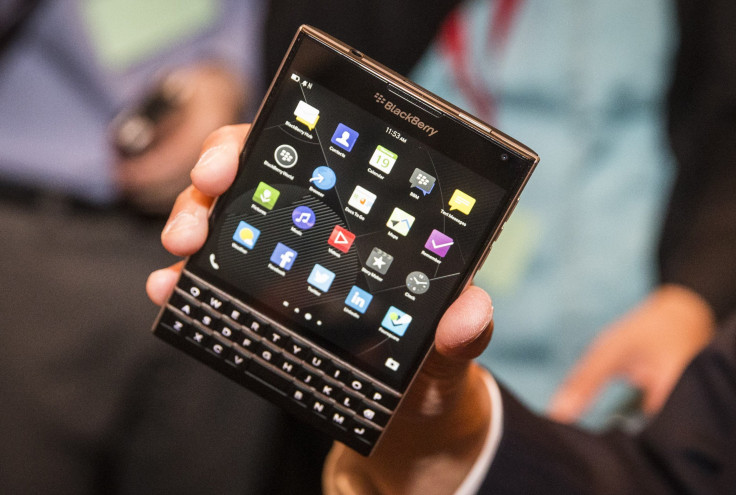Blackberry To Stop Making Phones: Canadian Company Will Outsource Development And Focus On Software

BlackBerry Limited announced on Wednesday that it will no longer develop smartphones in-house and will be outsourcing hardware development to its partners. This marks a major shift in the Canadian multinational wireless equipment company’s strategy, formerly known as Research In Motion, as internal hardware development has been a part of it for 14 years.
"The company plans to end all internal hardware development and will outsource that function to partners,” BlackBerry chairman and CEO John Chen said in a statement. “This allows us to reduce capital requirements and enhance return on invested capital."
Instead of development, the company will focus on software and services, which brought in $156 million in revenue in the second quarter. And according to Blackberry, 81 percent of this revenue is recurring.
"We are reaching an inflection point with our strategy," said Chen. “In Q2, we more than doubled our software revenue year over year and delivered the highest gross margin in the company’s history. We also completed initial shipments of BlackBerry Radar, an end-to end asset tracking system, and signed a strategic licensing agreement to drive global growth in our BBM consumer business.”
IDC technology analyst John Jackson told Reuters: "This is an entirely sensible decision and probably an overdue one. Software revenue and the margin profile associated with that is where the focus should have been, and now can be."
After releasing its first device in 2002, Blackbery became a leader in the market holding 20 percent of the global market share in 2009. With the debut of Apple’s iPhone in 2007, followed by the rising popularity of Samsung’s line of smartphones, the company lost its standing in the smartphone market.
Last November, the Canadian company unveiled a smartphone that ran on an Android operating system instead of the Blackberry’s standard BB10 operating system. Called the Priv, it featured a physical keyboard that was mean to lure Blackberry enthusiasts. At the time of the launch, Chen told The Verge he wanted to sell 5 million units a year but that the company would need to sell 3 million smartphones to break even. An unnamed high-level AT&T executive told CNET: “The BlackBerry Priv is really struggling. We’ve seen more returns than we would like.”
"BlackBerry has succumbed to the pressure so many other phonemakers have faced," CCS Insight’s chief of research, Ben Wood, reports the TechCrunch. “It lacks the scale to be competitive in devices and can’t keep producing its own phones indefinitely just to serve a small subset of its clients addicted to its home-grown devices. Having a third party take over manufacturing is sensible however how long that lasts has to be a question mark. BlackBerry had made no secret of the fact that it might shut down its own phone making business. Pushing it out to a third party is a sensible solution but any manufacturer making BlackBerry branded devices will ultimately face the same challenges if it can achieve sufficient scale."
© Copyright IBTimes 2024. All rights reserved.





















